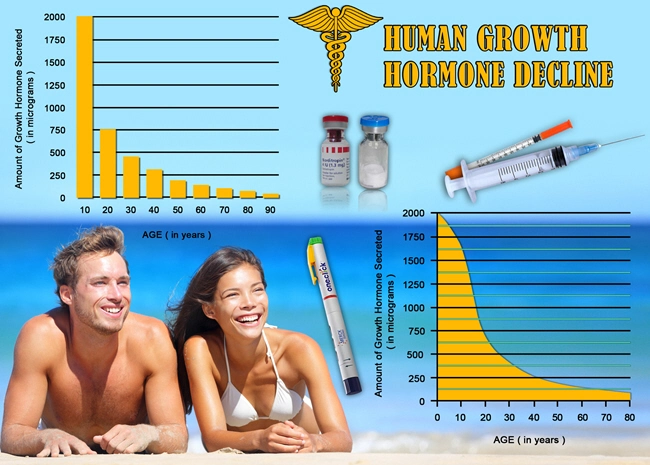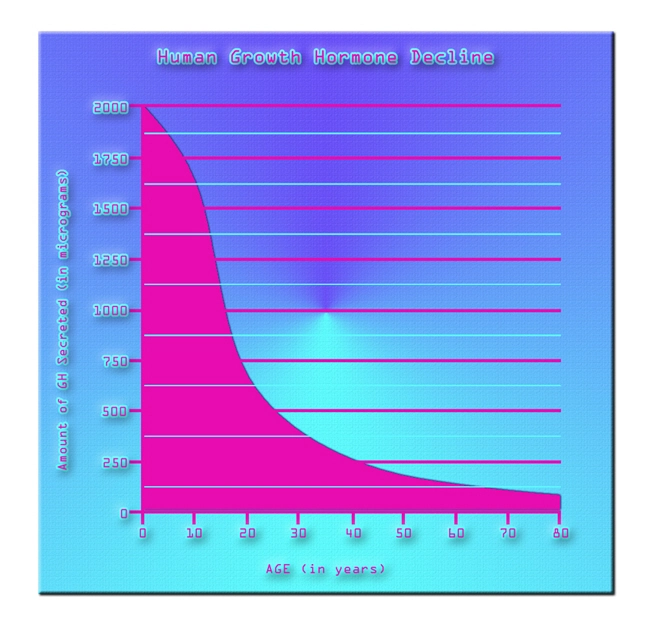
Introduction
Spinal cord injuries (SCI) can profoundly impact the lives of American males, particularly in the realm of sexual function. The disruption of neural pathways can lead to sexual dysfunction, which is a significant concern for quality of life. Recent advancements in medical science have introduced combined approaches, such as hormone replacement therapy (HRT) and neuromodulation, to address these challenges. This article explores these innovative treatments, focusing on their potential to restore sexual function and intimacy in men with SCI.
Understanding Sexual Dysfunction in SCI
Sexual dysfunction following a spinal cord injury is multifaceted, often involving issues such as erectile dysfunction, reduced libido, and difficulties with ejaculation and orgasm. The severity and type of dysfunction can vary depending on the level and completeness of the injury. For American males, these challenges can lead to emotional distress and strain on intimate relationships, underscoring the need for effective interventions.
Hormone Replacement Therapy: A Hormonal Boost
Hormone replacement therapy has emerged as a promising approach to address sexual dysfunction in men with SCI. Testosterone, the primary male sex hormone, plays a crucial role in sexual desire and function. SCI can lead to hypogonadism, a condition characterized by low testosterone levels, which can exacerbate sexual dysfunction. HRT aims to restore testosterone levels to normal ranges, potentially improving libido and erectile function.
In American males with SCI, HRT has shown encouraging results. Studies have demonstrated that testosterone supplementation can enhance sexual desire and improve the quality of erections. However, it is essential to monitor hormone levels closely and tailor the therapy to individual needs, as excessive testosterone can lead to adverse effects such as increased risk of cardiovascular disease.
Neuromodulation: Rewiring the Pathways
Neuromodulation techniques, such as sacral neuromodulation and penile vibratory stimulation, offer another avenue for addressing sexual dysfunction in SCI. These methods aim to stimulate or modulate the neural pathways involved in sexual function, bypassing the damaged areas of the spinal cord.
Sacral neuromodulation involves implanting a device that delivers electrical impulses to the sacral nerves, which are crucial for sexual function. This technique has shown promise in improving erectile function and facilitating ejaculation in men with SCI. Penile vibratory stimulation, on the other hand, uses a handheld device to stimulate the penis, potentially aiding in achieving erections and ejaculation.
For American males, these neuromodulation techniques represent a significant advancement in managing sexual dysfunction post-SCI. They offer a non-invasive or minimally invasive approach that can be customized to individual needs, providing hope for restoring sexual function and intimacy.
Combined Approaches: Synergy for Better Outcomes
The most promising approach to addressing sexual dysfunction in American males with SCI may lie in combining hormone replacement therapy and neuromodulation. By addressing both the hormonal and neural aspects of sexual function, these combined treatments can offer a more comprehensive solution.
Preliminary studies have shown that men who receive both HRT and neuromodulation experience greater improvements in sexual function compared to those receiving either treatment alone. The synergy between these approaches can enhance libido, improve erectile function, and facilitate ejaculation, leading to a more satisfying sexual experience.
Challenges and Future Directions
Despite the promising results, challenges remain in implementing these combined approaches. Access to specialized care, the cost of treatments, and the need for individualized therapy plans are significant hurdles. Moreover, ongoing research is needed to optimize these treatments and understand their long-term effects.
For American males with SCI, the future of sexual dysfunction treatment looks promising. As research continues to advance, the integration of hormone replacement therapy and neuromodulation may become a standard of care, offering hope for restoring intimacy and improving quality of life.
Conclusion
Sexual dysfunction following spinal cord injury is a complex issue that significantly impacts American males. The combined use of hormone replacement therapy and neuromodulation represents a cutting-edge approach to addressing these challenges. By targeting both hormonal and neural aspects of sexual function, these treatments offer the potential to restore intimacy and enhance the quality of life for men with SCI. As research progresses, these innovative therapies may become increasingly accessible, providing new hope for those affected by spinal cord injuries.
Contact Us Today For A Free Consultation
Dear Patient,
Once you have completing the above contact form, for security purposes and confirmation, please confirm your information by calling us.
Please call now: 1-800-380-5339.
Welcoming You To Our Clinic, Professor Tom Henderson.

- Exploring Vasopressin Receptor Antagonists: A Breakthrough in Treating Sexual Dysfunction in Eugonadal Men [Last Updated On: February 20th, 2025] [Originally Added On: February 20th, 2025]
- Somatostatin Analogues' Impact on Sexual Function in American Men with Neuroendocrine Disorders [Last Updated On: February 27th, 2025] [Originally Added On: February 27th, 2025]
- Exploring the Therapeutic Potential of Kisspeptin in Men with Hypothalamic Hypogonadism: Impacts on Sexual Function and Desire [Last Updated On: March 4th, 2025] [Originally Added On: March 4th, 2025]
- Optimizing Hormone Replacement Therapy for Erectile Dysfunction: The Cortisol-Testosterone Ratio Connection [Last Updated On: March 7th, 2025] [Originally Added On: March 7th, 2025]
- Neurosteroid Modulation: A Promising Treatment for Men's Libido Disorders and Beyond [Last Updated On: March 8th, 2025] [Originally Added On: March 8th, 2025]
- Managing Hormonal Imbalances in Men with Aromatase Inhibitors: Improving Sexual Health Safely [Last Updated On: March 9th, 2025] [Originally Added On: March 9th, 2025]
- Enhancing Male Sexual Health: The Role of DHEA Supplementation in Combating Age-Related Dysfunction [Last Updated On: March 14th, 2025] [Originally Added On: March 12th, 2025]
- Exploring Melatonin's Impact on Circadian Rhythms and Sexual Health: A Case for Integrated Hormone Therapy in American Males [Last Updated On: March 13th, 2025] [Originally Added On: March 13th, 2025]
- Evaluating hCG Monotherapy and Testosterone Replacement: Impacts on Erectile Function in Men with Secondary Hypogonadism [Last Updated On: March 15th, 2025] [Originally Added On: March 15th, 2025]
- SARMs' Impact on Sexual Function in Aging American Males: Benefits and Risks [Last Updated On: March 17th, 2025] [Originally Added On: March 17th, 2025]
- Genetic Polymorphisms in Androgen Receptors Impact Hormone Therapy for Male Sexual Dysfunction [Last Updated On: March 18th, 2025] [Originally Added On: March 18th, 2025]
- Leptin Resistance and Sexual Dysfunction in Men: Insights from Hormone Optimization Therapy [Last Updated On: March 18th, 2025] [Originally Added On: March 18th, 2025]
- Testosterone's Role in Enhancing Erectile Function via Endothelial and NO Pathways [Last Updated On: March 19th, 2025] [Originally Added On: March 19th, 2025]
- Zinc Supplementation Enhances Testosterone Therapy for Sexual Dysfunction in American Males [Last Updated On: March 19th, 2025] [Originally Added On: March 19th, 2025]
- TRT Pharmacokinetics and Sexual Function in American Males with Hypogonadism [Last Updated On: March 19th, 2025] [Originally Added On: March 19th, 2025]
- Age-Related Decline in Kiss1 Expression and Its Impact on Sexual Dysfunction in American Males [Last Updated On: March 19th, 2025] [Originally Added On: March 19th, 2025]
- Ghrelin's Dual Role in Appetite and Sexual Health: Interventions for American Males [Last Updated On: March 20th, 2025] [Originally Added On: March 20th, 2025]
- Bioavailable vs. Total Testosterone: Predicting Sexual Function in HRT for American Males [Last Updated On: March 20th, 2025] [Originally Added On: March 20th, 2025]
- Vitamin D, Testosterone Levels, and Erectile Function: Clinical Insights and Implications [Last Updated On: March 20th, 2025] [Originally Added On: March 20th, 2025]
- Clinical Trial Reveals GnRH Modulation Therapy Effective for HSDD in American Men [Last Updated On: March 20th, 2025] [Originally Added On: March 20th, 2025]
- Timing of HRT Crucial for Sexual Function in American Males with Delayed Puberty [Last Updated On: March 22nd, 2025] [Originally Added On: March 22nd, 2025]
- Iodine Deficiency, Thyroid Health, and Male Sexual Function: Multimodal HRT Benefits [Last Updated On: March 22nd, 2025] [Originally Added On: March 22nd, 2025]
- Calcium-to-Magnesium Ratio's Impact on HRT Success in American Men with Sexual Dysfunction [Last Updated On: March 23rd, 2025] [Originally Added On: March 23rd, 2025]
- Pituitary Microadenomas: Impact on Male Sexual Health and Hormone Therapy Management [Last Updated On: March 23rd, 2025] [Originally Added On: March 23rd, 2025]
- Mumps Orchitis and Sexual Dysfunction: Efficacy of Hormone Replacement in American Males [Last Updated On: March 23rd, 2025] [Originally Added On: March 23rd, 2025]
- Magnesium Levels Predict Testosterone Therapy Success for ED in American Males [Last Updated On: March 24th, 2025] [Originally Added On: March 24th, 2025]
- Anabolic Steroid-Induced Hypogonadism: Recovery and Sexual Health Restoration in American Males [Last Updated On: March 24th, 2025] [Originally Added On: March 24th, 2025]
- Chromium Supplementation Enhances Testosterone Therapy: Benefits for Insulin Sensitivity and Sexual Function [Last Updated On: March 24th, 2025] [Originally Added On: March 24th, 2025]
- Hormone Replacement Therapies for Sexual Function in American Males with Testicular Atrophy [Last Updated On: March 24th, 2025] [Originally Added On: March 24th, 2025]
- Phlebotomy and HRT Improve Sexual Function in Males with Iron Overload and Hypogonadism [Last Updated On: March 24th, 2025] [Originally Added On: March 24th, 2025]
- Hormone Therapy Responses in Testicular Failure vs. Secondary Hypogonadism in American Males [Last Updated On: March 24th, 2025] [Originally Added On: March 24th, 2025]
- Selenium's Role in Male Sexual Health: Hormonal Balance and Function in American Men [Last Updated On: March 24th, 2025] [Originally Added On: March 24th, 2025]
- Comparing Hormone Replacement Strategies for Chemotherapy-Induced Hypogonadism in American Males [Last Updated On: March 24th, 2025] [Originally Added On: March 24th, 2025]
- Subclinical Hypothyroidism's Impact on Testosterone and Sexual Dysfunction in American Men [Last Updated On: March 25th, 2025] [Originally Added On: March 25th, 2025]
- Radiation-Induced Testicular Damage: Effects on Sexual Function and Hormone Therapy Benefits [Last Updated On: March 25th, 2025] [Originally Added On: March 25th, 2025]
- Copper-to-Zinc Ratio: Predicting Hormone Therapy Success in Male Sexual Dysfunction [Last Updated On: March 25th, 2025] [Originally Added On: March 25th, 2025]
- Managing Type 2 Diabetes and Sexual Health: Metabolic Control and Hormone Optimization [Last Updated On: March 25th, 2025] [Originally Added On: March 25th, 2025]
- Opioid-Induced Endocrinopathy: Comparing Hormone Replacement Therapies in American Males [Last Updated On: March 25th, 2025] [Originally Added On: March 25th, 2025]
- Boron Supplementation Enhances Sexual Function in Aging American Males: A Review [Last Updated On: March 25th, 2025] [Originally Added On: March 25th, 2025]
- Cryptorchidism: Impacts on Sexual Function and Modern Hormone Therapy in American Males [Last Updated On: March 25th, 2025] [Originally Added On: March 25th, 2025]
- Traumatic Testicular Injury: HRT Benefits and Risks for Sexual Dysfunction in American Males [Last Updated On: March 26th, 2025] [Originally Added On: March 26th, 2025]
- Varicocelectomy with Hormone Therapy Enhances Sexual Function in American Males [Last Updated On: March 26th, 2025] [Originally Added On: March 26th, 2025]
- HRT Improves Sexual Function in Aging Males with PADAM: Long-Term Outcomes [Last Updated On: March 26th, 2025] [Originally Added On: March 26th, 2025]
- Abstinence and Hormone Therapy Enhance Sexual Health in American Males with Alcohol-Induced Testicular Dysfunction [Last Updated On: March 26th, 2025] [Originally Added On: March 26th, 2025]
- Testicular Torsion's Impact on Sexual Function and Hormone Optimization Benefits for American Males [Last Updated On: March 26th, 2025] [Originally Added On: March 26th, 2025]
- Hormone Replacement Therapy for Sexual Dysfunction in American Males with CKD: Benefits and Challenges [Last Updated On: March 26th, 2025] [Originally Added On: March 26th, 2025]
- Phlebotomy and Testosterone Therapy Enhance Sexual Function in Hemochromatosis-Induced Hypogonadism [Last Updated On: March 26th, 2025] [Originally Added On: March 26th, 2025]
- Weight Loss vs. HRT: Managing Obesity-Related Hypogonadism in American Males [Last Updated On: March 26th, 2025] [Originally Added On: March 26th, 2025]
- Optimizing Hormone Therapy for Sexual Dysfunction in Klinefelter Syndrome: A Comprehensive Approach [Last Updated On: March 27th, 2025] [Originally Added On: March 27th, 2025]
- Glucocorticoid vs. Testosterone Therapy: Managing Sexual Dysfunction in Adrenal Insufficiency [Last Updated On: March 27th, 2025] [Originally Added On: March 27th, 2025]
- Managing Rheumatoid Arthritis and Sexual Dysfunction in American Males: Combined Therapy Insights [Last Updated On: March 27th, 2025] [Originally Added On: March 27th, 2025]
- Marijuana Use and Male Sexual Health: Hormonal Impacts and HRT Solutions [Last Updated On: March 28th, 2025] [Originally Added On: March 28th, 2025]
- NAFLD in American Males: Hormonal Dysregulation, Sexual Health, and Multimodal Treatment [Last Updated On: March 28th, 2025] [Originally Added On: March 28th, 2025]
- Smoking's Impact on Sexual Health in American Males: Causes and Solutions [Last Updated On: March 28th, 2025] [Originally Added On: March 28th, 2025]
- Cushing's Syndrome: Cortisol, Testosterone Therapy, and Sexual Health Recovery in American Males [Last Updated On: March 28th, 2025] [Originally Added On: March 28th, 2025]
- CPAP and Hormone Therapy Enhance Sexual Health in Men with OSA [Last Updated On: March 28th, 2025] [Originally Added On: March 28th, 2025]
- IBD's Impact on Testosterone and Sexual Health in American Males: Management Strategies [Last Updated On: March 28th, 2025] [Originally Added On: March 28th, 2025]
- Parkinson's Disease Impact on Sexual Health in American Males: Management Strategies [Last Updated On: March 29th, 2025] [Originally Added On: March 29th, 2025]
- Dopamine Agonists vs. Testosterone for Hyperprolactinemia-Induced Sexual Dysfunction in American Men [Last Updated On: March 30th, 2025] [Originally Added On: March 30th, 2025]
- Exploring MS Impact on Male Sexual Health: Neurohormonal Treatment Approaches [Last Updated On: March 30th, 2025] [Originally Added On: March 30th, 2025]
- Alzheimer's Impact on Sexual Health in American Males: Exploring HRT and Holistic Care [Last Updated On: April 1st, 2025] [Originally Added On: April 1st, 2025]
- Post-Stroke Sexual Dysfunction in American Men: Neuroendocrine Assessment and Hormone Therapy Outcomes [Last Updated On: April 2nd, 2025] [Originally Added On: April 2nd, 2025]
- HRT as a Promising Solution for SSRI-Induced Sexual Dysfunction in American Men [Last Updated On: April 5th, 2025] [Originally Added On: April 5th, 2025]
- Mitigating Sexual Dysfunction in Prostate Cancer Treatment with Selective Hormone Replacement [Last Updated On: April 6th, 2025] [Originally Added On: April 6th, 2025]
- Antipsychotic-Induced Hyperprolactinemia: Impacts and Management Strategies for American Males [Last Updated On: April 6th, 2025] [Originally Added On: April 6th, 2025]
- Beta-Blockers' Impact on Sexual Function in American Males: Comparative Study and Hormone Therapy Benefits [Last Updated On: April 8th, 2025] [Originally Added On: April 8th, 2025]
- Recovery from 5?-Reductase Inhibitor Sexual Dysfunction: Hormone Modulation Strategies for American Males [Last Updated On: April 9th, 2025] [Originally Added On: April 9th, 2025]
- Statins and Male Sexual Health: Hormonal Impacts and Testosterone Therapy Solutions [Last Updated On: April 9th, 2025] [Originally Added On: April 9th, 2025]
- Clomiphene Citrate vs. TRT: Impacts on Sexual Function and Fertility in Young Men [Last Updated On: April 10th, 2025] [Originally Added On: April 10th, 2025]
- Anastrozole Enhances TRT Outcomes by Mitigating Estradiol-Related Sexual Dysfunction in American Men [Last Updated On: April 11th, 2025] [Originally Added On: April 11th, 2025]
- Post-Prostatectomy Sexual Health: HRT Timing, Types, and Holistic Management for American Males [Last Updated On: April 11th, 2025] [Originally Added On: April 11th, 2025]
- Radiotherapy-Induced Endocrine Dysfunction: Managing Sexual Health in American Males [Last Updated On: April 11th, 2025] [Originally Added On: April 11th, 2025]
- Partial Hormone Replacement: Enhancing Sexual Function in Prostate Cancer Patients on ADT [Last Updated On: April 12th, 2025] [Originally Added On: April 12th, 2025]
- Testosterone Therapy Challenges and Aromatase Inhibitors' Role in Sexual Health [Last Updated On: April 13th, 2025] [Originally Added On: April 13th, 2025]
- hCG Monotherapy Enhances Sexual Function in American Males on TRT [Last Updated On: April 14th, 2025] [Originally Added On: April 14th, 2025]
- Tamoxifen's Role in Managing Gynecomastia in Men on TRT: Impact on Sexual Function [Last Updated On: April 15th, 2025] [Originally Added On: April 15th, 2025]
- Hormone Therapy and Optimization: A New Hope for American Men with ED [Last Updated On: April 16th, 2025] [Originally Added On: April 16th, 2025]
- PRP Injections for ED: Efficacy in Men with Normal vs. Low Testosterone Levels [Last Updated On: April 16th, 2025] [Originally Added On: April 16th, 2025]
- Low-Dose Tadalafil and TRT: Enhancing ED Treatment for American Men [Last Updated On: April 16th, 2025] [Originally Added On: April 16th, 2025]
- Pelvic Floor Therapy and HRT: A Multimodal Approach to Treating ED in American Males [Last Updated On: April 17th, 2025] [Originally Added On: April 17th, 2025]








